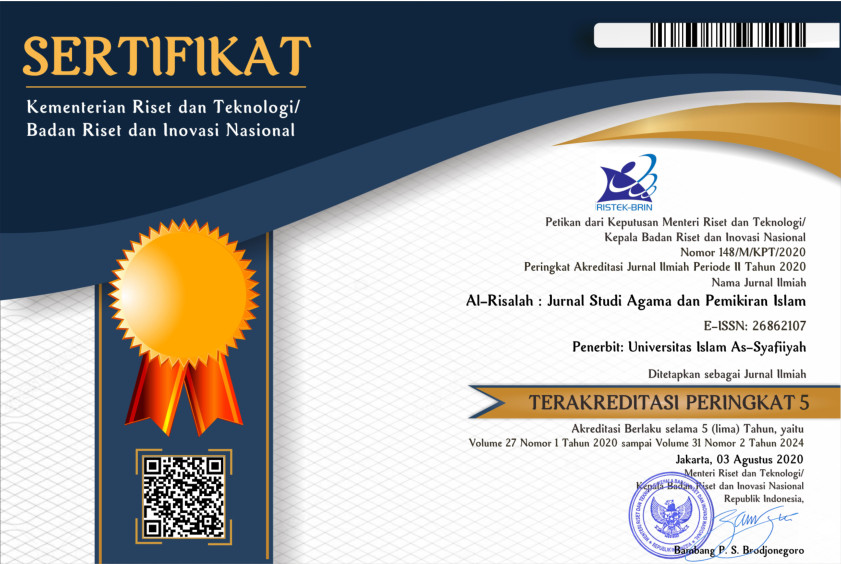AN EXAMINATION OF THE TRENDS AND FACTORS RESPONSIBLE FOR CHALLENGES FACING MUSLIMS IN TARABA STATES, NIERIA (1991-2021)
Abstract
The objective of this study was to thoroughly examine the trends and factors contributing to the challenges experienced by Muslims in Taraba State. Primary and secondary data were collected through structured interviews, participatory observation, and analysis of documentary sources. Several significant findings emerged from the study. It was observed that there was a harmonious relationship between Muslims and non-Muslims in the past, with Muslims enjoying a high socio-political and economic status that was respected by non-Muslims. However, the study identified various challenges faced by Muslims in Taraba State. These challenges included disunity, a lack of control over political power in the state, internal divisions, the flawed approach of certain early scholars, and moral decline among Muslims. Additionally, challenges such as ethnic identity, indigene and minority issues, unfavorable government policies, and the proliferation of intensive Fulbe-Hausa Christian evangelistic activities targeting Fulbe and Hausa Muslim populations were identified. The study also revealed several factors responsible for these challenges, including the lukewarm attitudes of some Muslim leaders, low levels of education in both Islamic and Western education, the failure of Muslim politicians and elites to unite for the advancement of Islam and Muslims, the breakdown of family institutions, and the absence of a sustainable financial foundation for Da'wah funding. In conclusion, the study provides recommendations for overcoming these challenges and improving the situation for Muslims in the state.
Copyright (c) 2023 Tahdzib Al-Akhlaq: Jurnal Pendidikan Islam

This work is licensed under a Creative Commons Attribution 4.0 International License.
This work is licensed under a Lisensi Creative Commons Atribusi 4.0 Internasional.
Authors who publish with this journal agree to the following terms:
- Authors retain copyright and grant the journal right of first publication with the work simultaneously licensed under a Creative Commons Attribution License that allows others to share the work with an acknowledgment of the work's authorship and initial publication in this journal.
- Authors are able to enter into separate, additional contractual arrangements for the non-exclusive distribution of the journal's published version of the work (e.g., post it to an institutional repository or publish it in a book), with an acknowledgment of its initial publication in this journal.
- Authors are permitted and encouraged to post their work online (e.g., in institutional repositories or on their website) prior to and during the submission process, as it can lead to productive exchanges, as well as earlier and greater citation of published work (See The Effect of Open Access).





